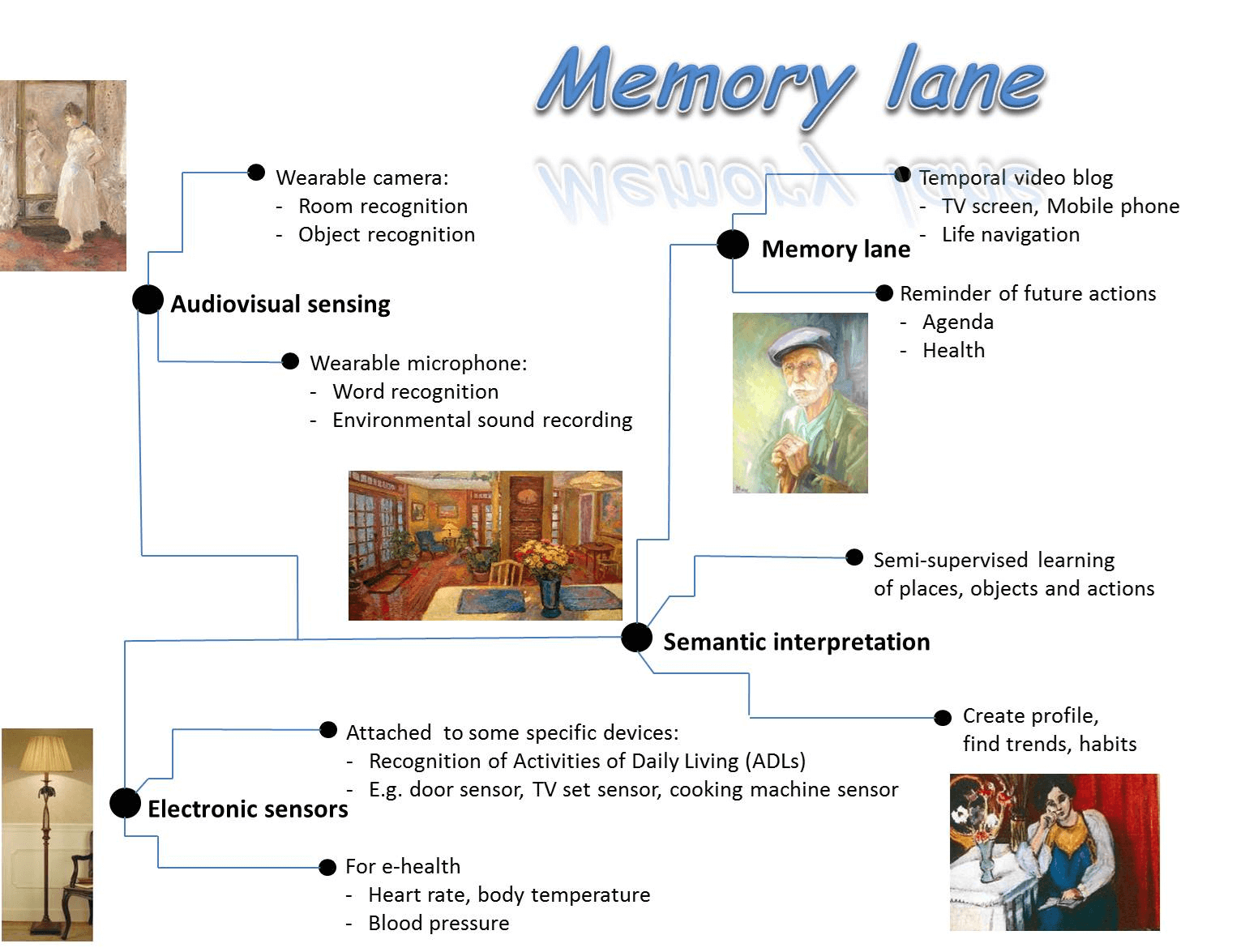- Area: Quality of life
- Start date: January 2013
- End date: December 2017
- Links:
- Type: MINECO. TIN2013-45312-R
The Memory Lane project address a new research line related to capture and recognition of human activities for well-being of people with special needs. The project is done by to research groups with large experience in previous works in the application field and complementary scientific/technical expertise; CVLab in activity recognition by computer vision and HOWLab in ambient intelligence environments, sensor networks and wireless communications. This proposal addresses the problem of labelling the scenario and the activities by fusioning data from images and audio as well as the information provided by other electronics sensor spreaded along the environment and on the user. On the other hand, the focus on this approach is not in the user, as carried out in previous projects, but in the environment around the subject, since he/she is wearing a portable camera.
Clinical context Dementia, a leading cause of disability in the elderly, currently affects nearly 10 million people in Europe and over 35 million worldwide. Rising at unprecedented rates, these figures are projected to increase to 14 and 65.7 million respectively by 2030. The socioeconomic repercussions are equally staggering. In Europe alone, the total costs of dementia amount to over €180 billion in 2010 and are estimated to exceed €250 billion by 2030. The aforementioned inflict a significant burden on healthcare systems, society and the economy, necessitating effective treatment means, while preserving quality of life for the people affected and for their carers.
The goal of this project is about providing a tool to automatically and unobtrusively create a contextualized life-blog for people with special needs and make it available for later context-dependent retrieval. Such life-blog will contain images and sounds as perceived by the person, chronologically ordered and automatically tagged by the system providing them with contextual meaning. Thus, it will be possible to make searches of events or applying different algorithms to create different applications such as exercising the memory by revising emotional bindings with the past, serving as task tutorial when memory worsens, and working as alarm detection, evaluating person’s quality of life or just for entertainment. We also propose to validate the system with some users.

